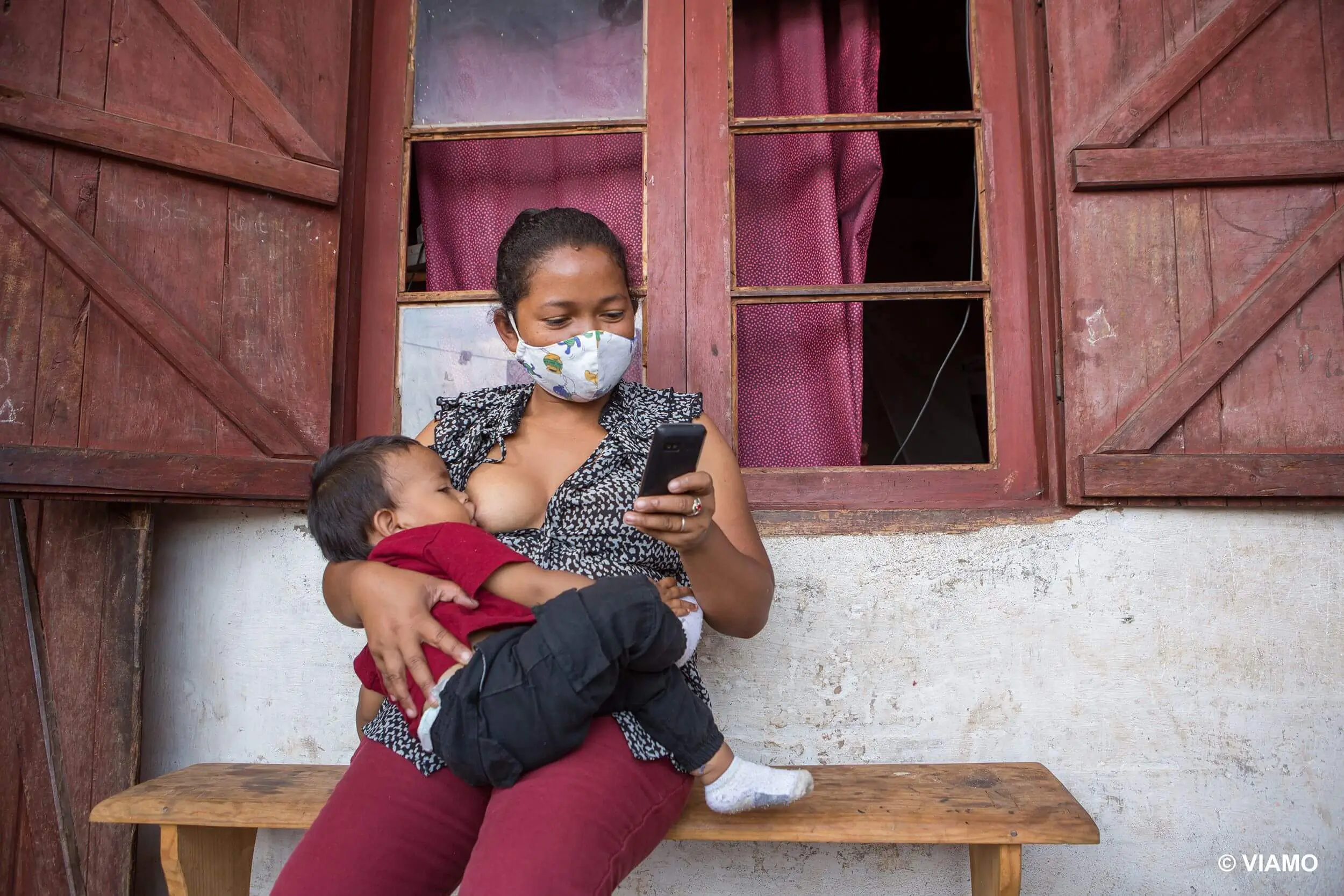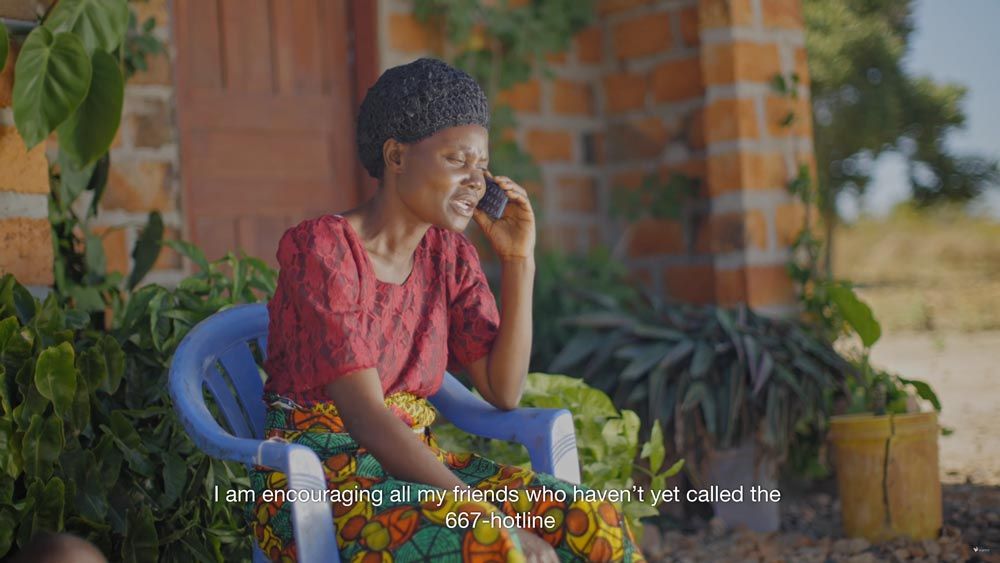German aid agency GIZ and Viamo’s partnership under the project CallVsCorona has seen dramatic behavior change regarding COVID-19 across seven low-income countries in Africa and the Caribbean.
In seven of the eight countries, more than 65 percent of listeners changed their daily routines and practices, according to formal survey results. In countries like Haiti, that was as high as 77 percent.
As we are entering the fourth year of living with COVID-19, the race to vaccinate the world has slowed as 62 percent of the world has received their vaccine.
But for the entirety of the pandemic, low-income countries have remained a step behind.
Many governments issued thorough public health measures and strong responses. But supply chains, funding and access to vaccines have slowed response rates. As a result, only 17 percent of people in low-income countries have been vaccinated.
To address emerging health concerns at the start of the pandemic, Viamo and GIZ’s SmartDevelopmentFund, with Co-Financing from the European Union, launched CallVsCorona, boasting the best of Viamo’s Digital Campaigns and Digital Trainings to provide timely information.
Initial Success
The first phase in 2020 spanned five countries, Haiti, Malawi, Madagascar, Mozambique and Zambia. More than 1.3 million unique people tuned in to learn life-saving information about the COVID-19 pandemic and how to protect themselves.
All content was hosted on Viamo’s Platform and included key messages, edutainment games and drama series that were also aired on local radio stations. Digital Trainings brought the same information to community health workers and agriculture extension agents for further reach.
At the end of phase one, survey results showed that most listeners recognized the importance of social distance and preventative measures after engaging with the content. This life-saving information had a trickle-down effect with listeners reporting that they shared what they learned with their spouses and families, creating a community-wide impact.
”“Our joint project CallvsCorona has made it possible for over 1.3 million people to get access to verified and vital information in the most remote areas of countries such as Madagascar, Senegal and Haiti. I appreciate that CallvsCorona is especially inclusive as users can access the information through very simple mobile phones and the IVR-technology allows for illiterate people to stay up to date on issues such as COVID-19 but also topics which became more urgent in times of COVID such as getting informed on gender based violence or access to finance in trying times.”
Maída HernándezAdvisor #SmartDevelopmentFund/ GIZ
Addressing secondary effects of COVID-19
Phase two of CallvsCorona began in October 2021, building upon the success of phase one with three new countries, Senegal, Nigeria and Tunisia. The content developed with local partners and GIZ in phase two focused heavily on the secondary effects of the COVID-19 pandemic on agricultural production and gender-based violence (GBV) and tackled vaccine misinformation.
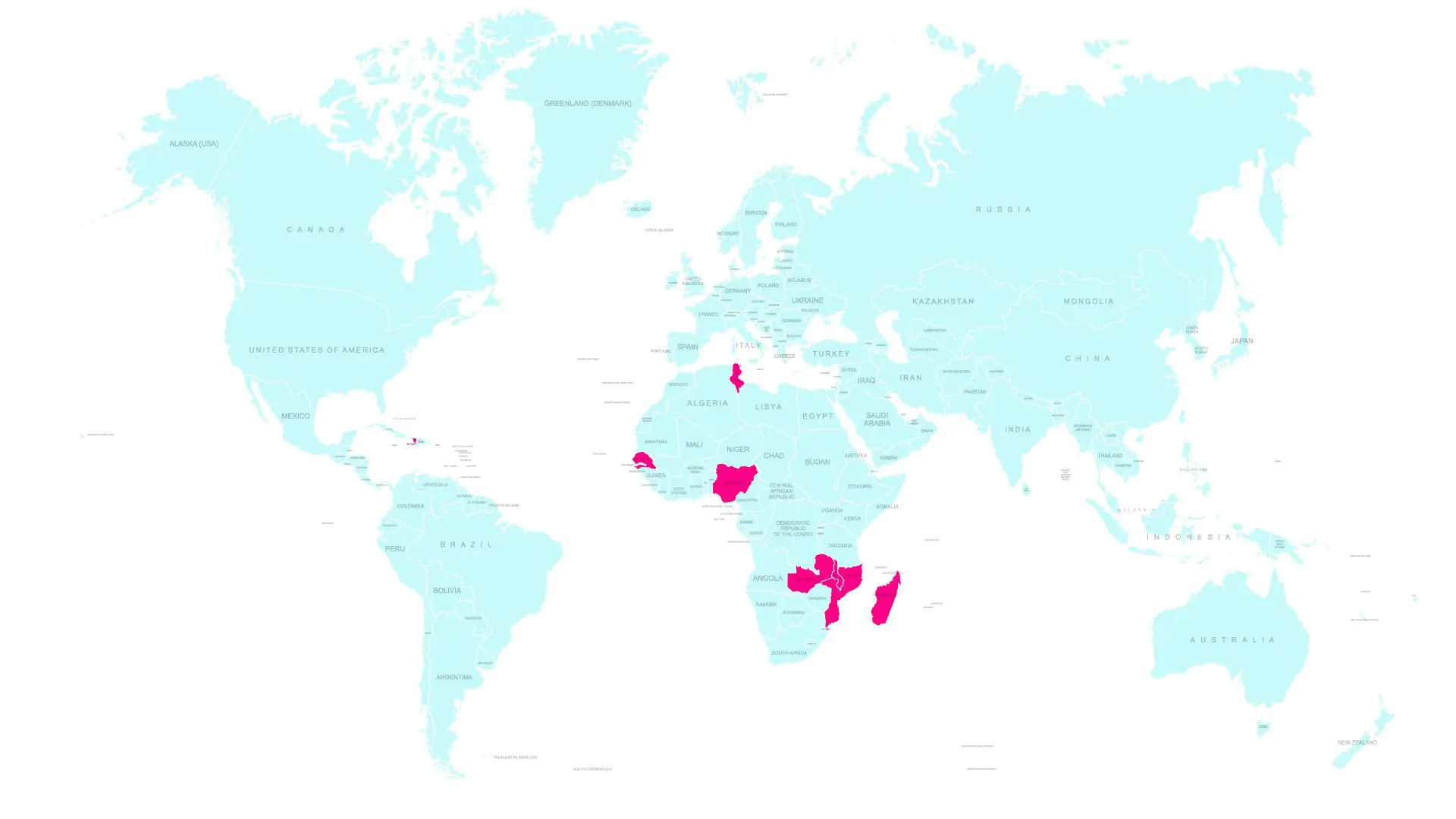
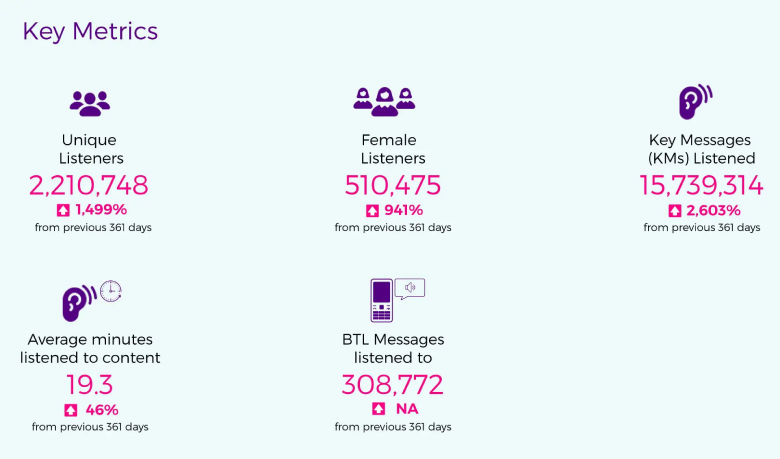
”“First I was afraid to go and get vaccinated. I was hearing a lot of stories so I called 321 to really understand about the vaccines, how they were made, and if any problems what problems can they come due to one getting vaccines. So through listening to the messages I was able to know that the vaccines are safe and I went to get vaccinated.”
WilliamMalawi
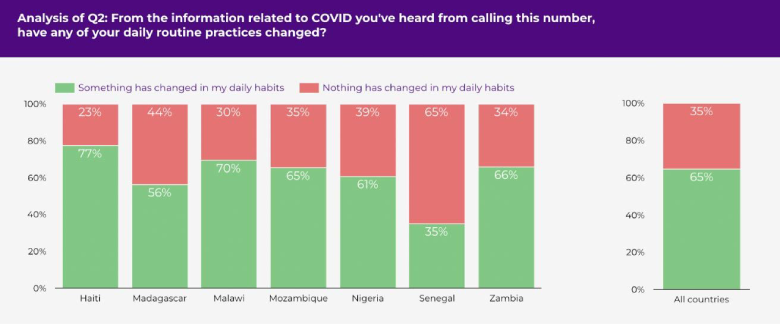
Engaging women and girls
The goal of phase two has been to drive positive behavior change amongst at least 400,000 people. To address a digital gender divide, special emphasis has been placed on ensuring women and girls have access to information important for themselves and their families safety.
”(I heard on the line) about Covid, when they taught me how to protect myself, always wash my hands, I always follow those instructions to avoid catching the virus.
AristideFemale, Haiti
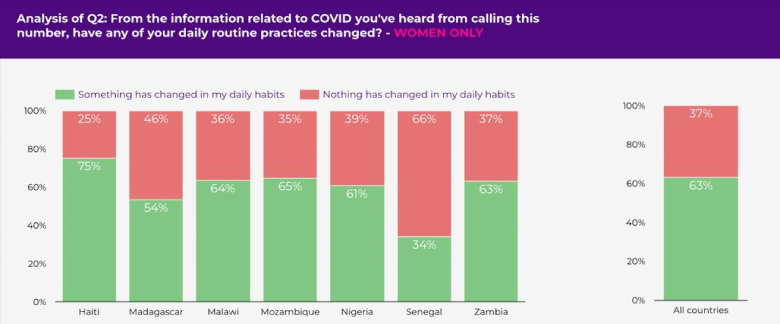
One area of concern was the rise of GBV as the result of lockdowns and economic uncertainty in all the countries. As a response, Viamo sent targeted promotional audio calls and SMS messages specifically to female subscribers, encouraging them to call into the Viamo Platforms and listen to the CallVsCorona content curated specifically for them.
Every health crisis is an information crisis.
Creating innovative messaging for unique and different people is critical for public health campaigns. The below archetypes give insights on how to best create engaging content that drives behavior change.
Personality Archetypes
Sharing accurate, timely health information is essential for curbing pandemics. But what about when the next pandemic or health crisis comes along? With Ebola and malnutrition across East Africa, how will we use what we learned during COVID-19 and improve how we craft messages in a way that drives behavior change?
Viamo has some insights to that question. We conducted in person and telephone interviews with 60 people across six countries to better understand Viamo’s users. Together, six unique user archetypes emerged.
This persona trusts what they hear and looks on the bright side. They need to know that the vaccine is safe from a reputable source.
”“It’s because the government loves us and thought of having the vaccine for free as they want us to live past this pandemic and live a long life.”
HellenFarmer, Malawi
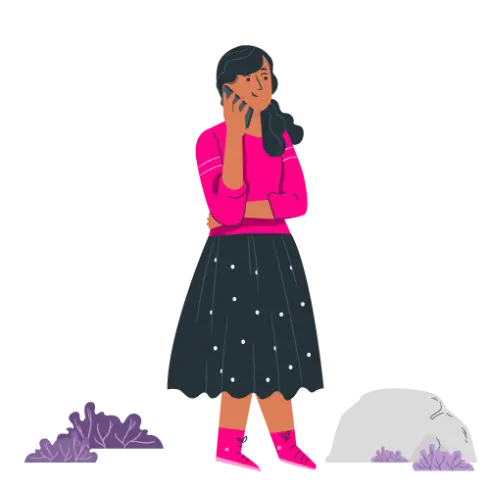
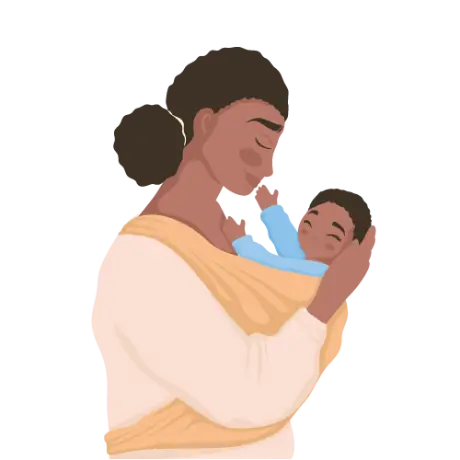
This user will follow the rules if they are clear and seek out authoritative information. They are likely to check and recheck their sources. They can be easily convinced if the message is coming from an authority that they trust. They will view getting vaccinated as a mandate, not a decision.
”“I follow the advice for my health, I have to follow what they are telling me. The advice is not difficult, so I follow all the advices, I wash my hands, put on a mask whenever I go up to the plate, don't close my mouth with my hand.”
MesiMother, Mozambique
This user is practical. They do things that offer clear and immediate value to them, and justify their actions through information and common sense.
”“More especially, looking at COVID-19, I can accept because what they talk about makes sense. So I can accept. What I can say concerning 667, the advise is that people need to follow it very much because what they say there makes a lot of sense.”
OladeleFarmer, Zambia

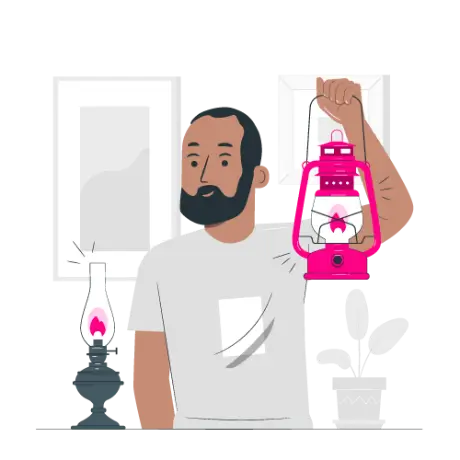
This user is going to come to decisions on their own. They won’t respond to pressure or feel like they must go along with the crowd.
”“I haven’t taken the vaccine yet. I will go and get vaccinated. Me on my own, I didn’t believe, I mean I am not fully satisfied with the information on COVID-19.”
RadoFisherman, Zambia
This user will make their own decisions if given reliable information. The most important thing is that they feel the decision is theirs and they have made an intelligent decision.
”“Prevention is better than cure.”
MondayNigeria

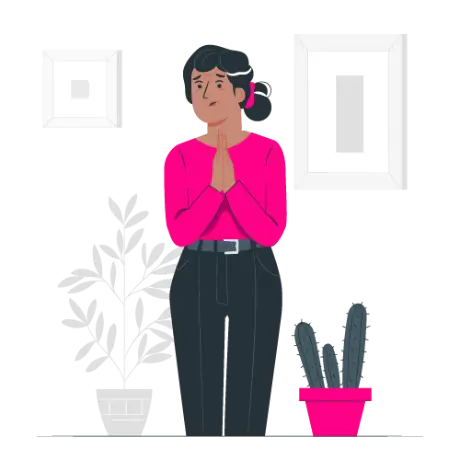
This user takes their cues from others. Seeing their community move in a particular direction gives them strength. This is also why misinformation is so effective with this group.
”“If it is real, I believe and do it, but there are those who don't believe and I'll never do it. The vaccine is said to kill people.”
LouiseStudent, Madagascar
